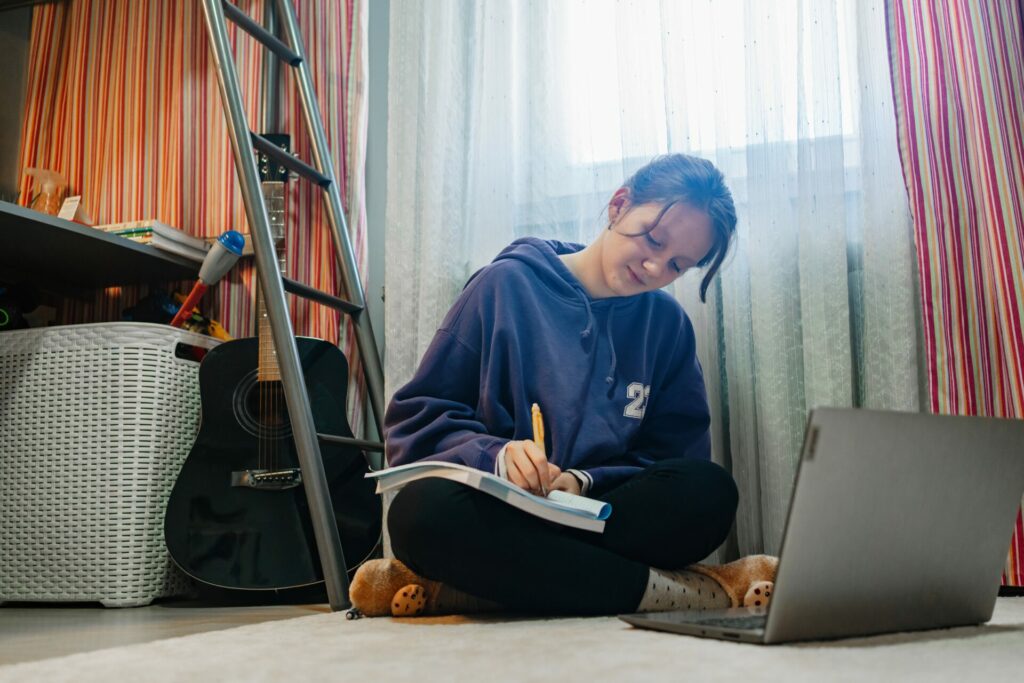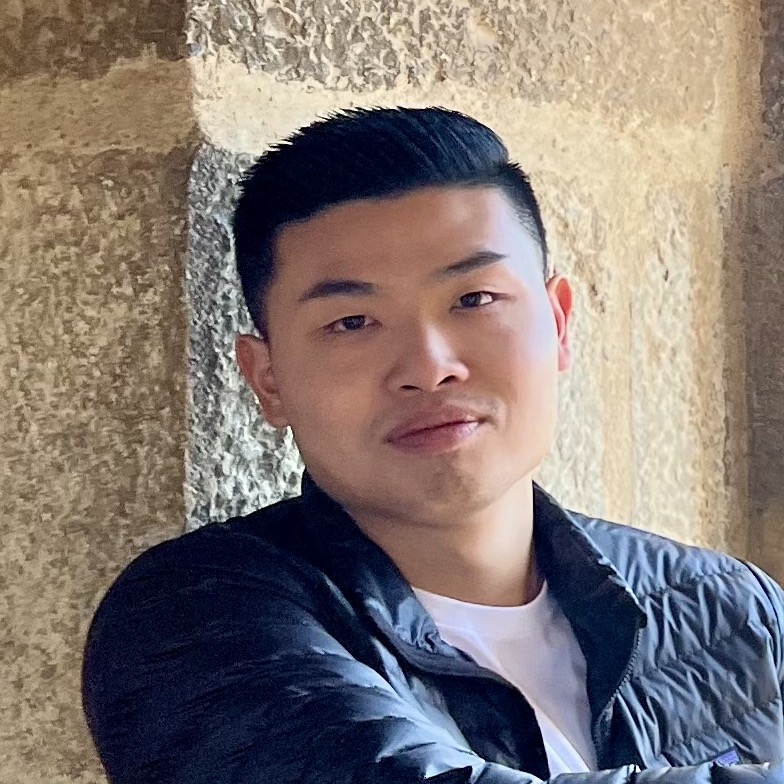We’re starting with students’ interests and elevating them into programs and real-world experiences. We’re not starting with academics and trying to make them interesting.
Brandon Goon, Head of Product at Prequel
Having dropped out of high school at age 16, Brandon Goon knew education needed a redesign. Now, as the Head of Product at Prequel, Brandon is building technology and programs that put kids in control of their time. We sat down with Brandon to talk about his journey and how Prequel is helping young learners develop new skills.
Q: What was your educational experience like and how did it lead you to the work you’re doing today?
Brandon: Throughout high school, I was always bored out of my mind. I loved to learn, but school prevented me from doing so. In my junior year, I stopped showing up and didn’t participate when I did. Teachers often asked, “Why don’t you just do the work?” or “Do you have something better to do?“ And I thought, “Yes! I do.” I would’ve preferred to be designing products, teaching myself to code, or following any of my other curiosities.
When I was 16, I decided to drop out of high school and work on projects, which helped me learn the basics of a product skillset. After months of doing projects, I started to wonder why they helped me learn so much. So, I started reading research papers about pedagogy. According to the research, project-based learning increases students’ test scores, motivation, and teacher satisfaction with their jobs. Adopting project-based learning felt obvious to me. To find out why it wasn’t the norm, I visited as many project-based schools as I could.
During my visits, I saw the challenges educators faced when implementing project-based learning. I felt empowered to solve those problems and started my first company, Be Anything. Be Anything was a platform that helped teachers turn any lesson into a fun project. Despite students’ and teachers’ satisfaction with the product, selling to administrators was difficult. The ed-tech world is a very sales-heavy industry and that’s not where I wanted to focus my energy, so I decided to set Be Anything aside. I joined Sora Schools, as their first product designer, and worked with other companies such as Galileo (now Kubrio) and Ender before starting my work at Prequel.
Q: Can you tell me about Prequel?
Brandon: Prequel is building career development programs for teenagers. We have workshops available, both free and paid, for teens who want to start a business, do content marketing, or invest in the stock market. I encourage any curious teen to sign up to try any of our free workshops. They’re all centered around entrepreneurship. However, we have a lot more programs in our pipeline.
In our flagship program, BETA Camp, teens work with industry mentors and launch real businesses. They learn about positioning their business, pivoting, and finding product market fit by actually doing it. After BETA Camp, Rishi, one of our students, went on to raise $1.6 million for his company Otto.
Not all of the businesses reach that level of success, but that’s not really what matters. What matters is that these kids develop their determinism and belief that they can achieve anything. It’s a mindset shift that really pushes them to do amazing things afterward.
After our programs, some students continue being entrepreneurs, and others land internships in marketing or design while still in high school. No matter what business they start in our program, every one of our students realizes that their learning is under their control and that they can shape their own future.
We have more programs in development and will create whatever kids are interested in, but the topic matter is just a means for the kids to develop the determination to do whatever they want to do. Content changes, the world changes — but education hasn’t. That’s what we want to change. We want to put kids in control of their time.
What matters is that these kids develop their determinism and belief that they can achieve anything. It’s a mindset shift that really pushes them to do amazing things afterward.
Brandon Goon, Head of Product at Prequel
Q: What are some of the philosophies or mindsets that guide Prequel?
Brandon: At Prequel, every product opportunity faces the same question: “Does this put kids in control of their time?” It’s the principle we invent from. We’re not replicating the principles of industrial school. We’re starting with students’ interests and elevating them into programs and real-world experiences. We’re not starting with academics and trying to make them interesting. Backward compatibility with academia just doesn’t work.
We may share instructional methods with schools, but we’re using them in totally different ways. We’re not worried about transcripts and accreditation. We’re taking the best instructional elements and rethinking the way we use them. We’re subverting the principals of a school. We’re designing for a different paradigm of education.
We’re still observing the early days of the post-industrial school era. Industrial school is still mainstream. That’s because the system uses “proof of learning” as a reductive organ. Accrediting bodies control the definition of learning within the bounds of a school. As long as schools follow these definitions, they’re considered legitimate. These definitions suppress learning outside of school, further entrenching the industrial paradigm. We strive to think differently.
Q: What’s something that makes you optimistic about the future of education?
Brandon: I’m extremely optimistic about the changes and preferences among parents. The pandemic really forced parents to see what their kids’ educational experiences looked like and showed that the current education system isn’t easily adaptable.
Prior to this, parents would send their kids to a public school and not really have to think too much about what their education was like. With the pandemic, parents saw — firsthand in their living room — their kids’ needs not being met. And, they could see the diversity of needs among learners. Parents started choosing micro-schools, private schools, homeschooling, and co-ops so they could be intentional about their kids’ learning.
A lot of parents have chosen to be more active in their kids’ learning to make sure that their child has access to the resources that they need. I think it’s great to see this market dynamic changing and see this intentionality around education growing.
I hope it leads to more organizations like Primer, Sora Schools, City as a School, or Synthesis where people have the choice to build their own education out of a collection of different things. I think that’s really uplifting and hope it becomes the norm. There are a lot of things that are going to be required to make these programs equitable, but I hope we can play a big role in that.
Innovation happens in waves. From when I dropped out of school seven years ago, progressive education has become more normal and better funded — there’s a cultural and market shift pushing more people towards a different way of learning, and I find that very uplifting.
Apply to BETA Camp: https://www.beta.camp/
Free Investing and Creator Workshops: https://joinprequel.com

